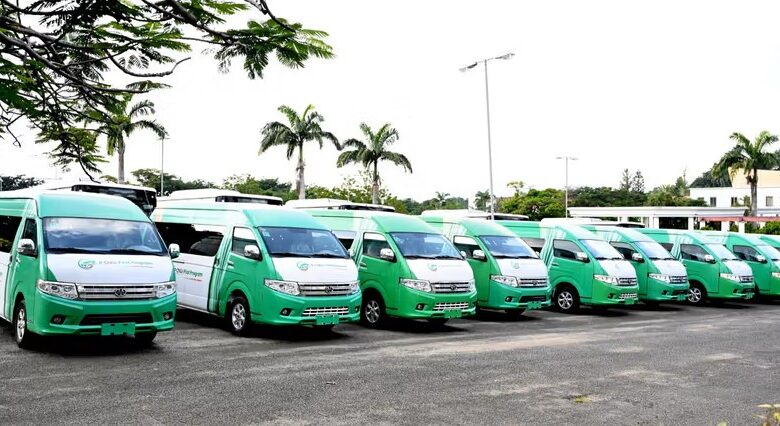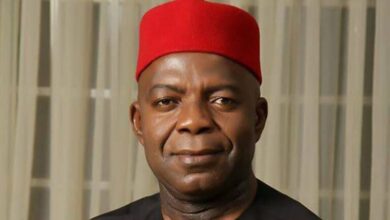FG Launches Free CNG Bus Service In Abuja To Ease Transportation Costs

The Federal Government has rolled out a free Compressed Natural Gas (CNG) bus service in Abuja as part of its efforts to alleviate the high cost of transportation for residents. The service, which commenced on December 2, 2024, is a key initiative under the Presidential CNG Initiative and will run for 40 days, ending on January 6, 2025.
Routes and Operations
The CNG buses are serving popular routes connecting Abuja’s suburbs to central locations such as Eagle Square and Berger bus stop. Residents in areas like Mararaba have already begun benefitting from the initiative, with many praising the government for the relief it offers during a period of economic challenges.
Commuters Respond Positively
Commuters who have experienced the service have expressed gratitude for the free rides. Fatima, a resident of Abuja, remarked, “I just boarded a CNG bus going to Maraba, and we were asked not to pay. I hope it will continue for long.”
Similarly, Blessing, another commuter, noted, “If they’re doing like this, we’ll be happy. After this one, let them bring down the price.”
Support for Transport Unions
In preparation for the program, the government, through the Ministry of Transportation, handed over 15 CNG-powered buses to three major transport unions:
•The National Union of Road Transport Workers (NURTW)
•The Nigerian Association of Road Transport Owners (NARTO)
•The Road Transport Employers Association of Nigeria (RTEAN)
This support is aimed at enhancing the capacity of these unions to provide cost-effective transportation while exploring sustainable energy solutions like CNG.
Why CNG?
The adoption of CNG-powered buses aligns with the government’s broader push towards clean and affordable energy. CNG is more cost-effective and environmentally friendly than traditional fossil fuels, making it a practical choice for addressing Nigeria’s transportation challenges.
The Road Ahead
The free bus service reflects the government’s efforts to cushion the effects of economic reforms, such as fuel subsidy removal, which have increased living costs for many Nigerians. While the program is temporary, it has sparked hopes for longer-term solutions to high transportation costs.
Residents are now calling for more initiatives like this and a reduction in transportation fares once the free service concludes. If sustained or expanded, the CNG bus program could serve as a model for addressing urban mobility challenges in Nigeria’s major cities.



